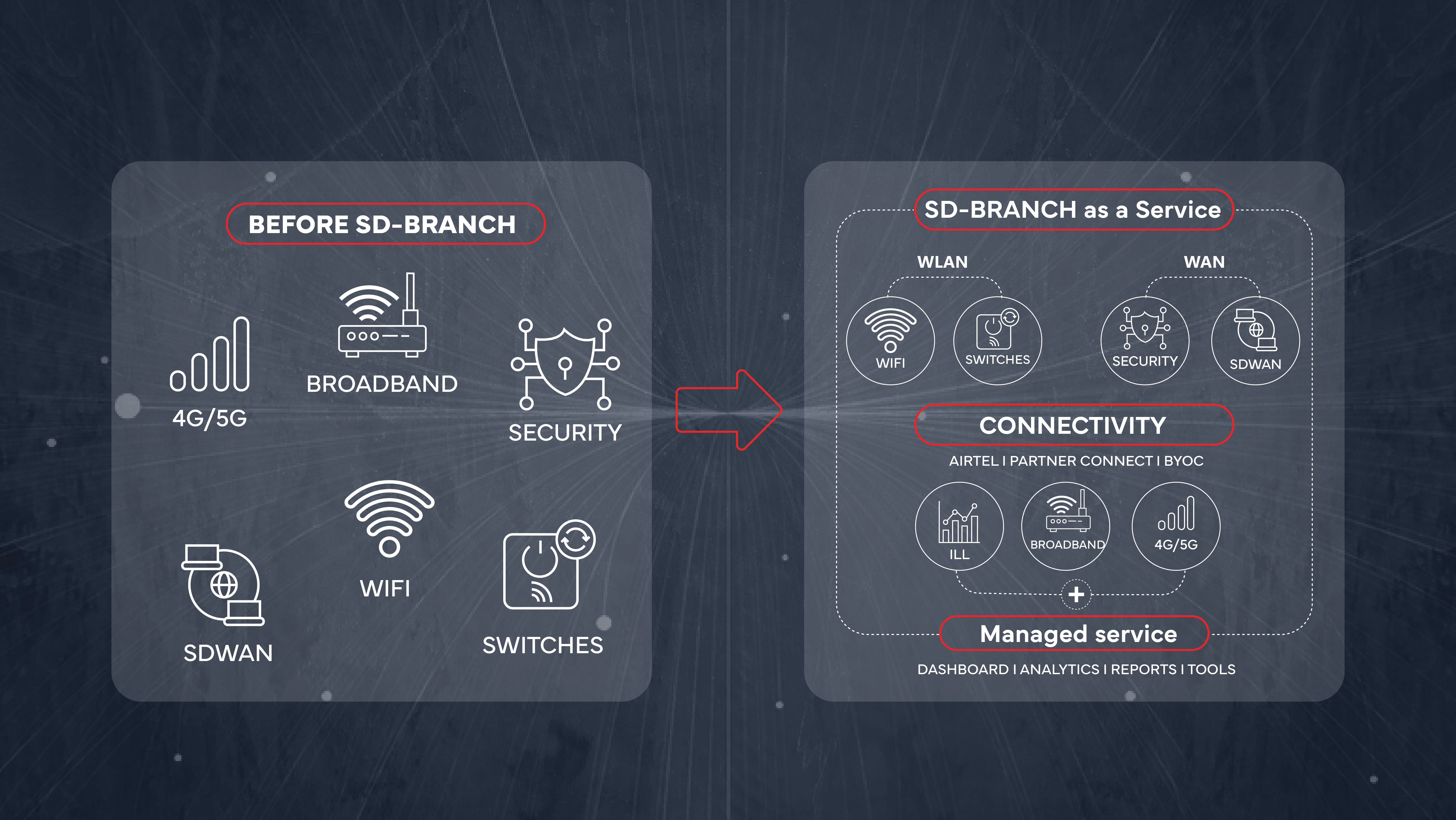Corporate Postpaid Plans Vs. Prepaid: What Works Best for Businesses?
-
April 7, 2025
-
7 min read

Reliable and cost-effective connectivity plays a critical role in business operations. Imagine running a business where your internet connection drops during a critical client meeting, or your team runs out of data while working remotely. Connectivity isn’t just a convenience, it’s the backbone of every modern company. The right connectivity plan impacts productivity, collaboration, and even costs.
Businesses often struggle between corporate postpaid vs prepaid plans. Postpaid offers uninterrupted service, predictable billing, and priority support, while prepaid gives flexibility with no long-term commitments. But which one truly supports growth, efficiency, and long-term success?
This article breaks down the differences, advantages, and key considerations to help you make an informed choice. Whether you’re a startup, SME, or large enterprise, the right decision can streamline operations and improve overall business performance.
About Corporate Postpaid and Prepaid Plans
Before deciding, businesses must understand how corporate postpaid vs prepaid plans function.
What is a Corporate Postpaid Plan?
A postpaid plan means businesses pay for mobile services at the end of the billing cycle. These plans offer:
- Fixed monthly charges based on selected plans
- Unlimited or high-data allowances depending on the package
- Priority network access allows better connectivity
- Flexible add-ons, such as international roaming and additional data
- Dedicated customer support for quick issue resolution
What is a Prepaid Plan?
Prepaid plans require businesses to pay upfront for talk time, data, and SMS services. These plans offer:
- No long-term contracts, allowing flexibility
- Complete cost control, as businesses pay in advance
- Recharge-based usage, eliminating billing surprises
- Basic network access, which may experience slower speeds during congestion
- Limited customisation options, with fewer corporate-focused benefits
Both options provide mobile connectivity, but the decision depends on a company’s requirements.
Corporate Postpaid Vs Prepaid: Key Differences
Here is a detailed corporate postpaid vs prepaid difference to help you get a complete idea about what can work best for your business.
1. Cost and Budgeting
Corporate postpaid and prepaid plans follow different pricing and payment structures. Postpaid plans generate a consolidated bill at the end of the billing cycle, which can help track total usage in one place. These plans are typically billed monthly, based on actual consumption.
Prepaid plans require payment in advance and allow companies to recharge based on their needs. This pay-as-you-go approach offers visibility into each transaction and enables real-time spending control.
The total cost may vary depending on usage patterns, organisational preferences, and administrative processes. Both options offer distinct budgeting methods and can be selected based on the company’s internal cost management preferences.
2. Service Reliability and Priority Access
Telecom providers often prioritise postpaid users, leading to better network stability, especially during peak hours. Businesses relying on office broadband internet services require uninterrupted connectivity, making postpaid plans more suitable.
Prepaid users may experience throttled speeds or network congestion during high-traffic periods. Businesses operating in critical sectors such as IT, finance, or healthcare may find these disruptions costly.
3. Billing and Payment Flexibility
Postpaid plans offer consolidated billing, simplifying expense tracking for companies managing multiple connections. Businesses receive a detailed monthly statement that breaks down usage, helping in budget analysis and compliance reporting.
Prepaid plans require frequent monitoring and manual top-ups. While they eliminate bill shocks, they demand more administrative effort. Small businesses or startups with irregular cash flow may find prepaid plans beneficial.
4. Data Benefits and Speed
Postpaid plans often include unlimited calling, higher data caps, and priority speeds. Companies using dedicated internet leased lines or high-speed office networks benefit from postpaid plans as they support heavy data consumption.
Prepaid plans may have speed restrictions after a certain data limit, affecting business operations. Video conferencing, cloud applications, and large file transfers require consistent speeds, making postpaid plans more suitable for enterprises.
5. Additional Features and Support
Corporate postpaid plans often come with enterprise-grade benefits such as:
- Dedicated account managers
- Priority customer support
- Customisable plans based on business needs
- Data rollover and bundled services
Prepaid plans typically lack these premium features. Businesses that require prompt assistance during network outages or technical issues may find postpaid plans more reliable.
6. Scalability for Growing Businesses
Postpaid plans accommodate expansion by allowing companies to add users and modify plans as needed. Many providers offer flexible upgrades without needing a full plan change.
Prepaid plans require manual recharges for each new user, which can become cumbersome as a company grows. Managing multiple prepaid accounts for employees may increase administrative workload.
7. International Roaming and Business Travel
Companies with employees travelling frequently for work benefit from corporate postpaid plans. Most providers offer international roaming packs, reducing costs for global connectivity.
Prepaid plans may have limited international roaming options, often requiring users to purchase separate packs. This can lead to inconsistent connectivity for employees working across different regions.
8. Security and Business Continuity
Postpaid plans provide better security features, including:
- Encrypted communication channels
- Advanced fraud detection
- Remote SIM management for businesses handling sensitive data
Prepaid plans may not offer these features, exposing companies to potential security risks. Businesses dealing with confidential information or requiring multi-layered security should consider postpaid plans.
9. Customisation and Add-Ons
Postpaid plans allow businesses to customise their plans based on employee needs. Companies can add extra data, international roaming, or productivity tools without switching plans. Many providers offer business-specific add-ons, such as priority customer service, workforce tracking, and analytics dashboards.
Prepaid plans lack customisation. Businesses must rely on fixed recharge packs, often without enterprise-grade features. Adjusting plans frequently can become inconvenient, especially for growing companies.
10. Downtime and Service Continuity
Postpaid plans offer uninterrupted service, even if bills are pending for a short period. Many providers also allow temporary credit extensions to avoid service disruptions. This ensures continuous connectivity for businesses relying on cloud applications, video conferencing, and customer communication.
Prepaid plans stop working immediately once the data or validity expires, leading to potential downtimes. Employees must monitor balances and manually recharge, which can disrupt workflow and communication.
Who Should Choose Corporate Postpaid Plans?
- Mid-sized to large enterprises with consistent and high data consumption
- IT, finance, and healthcare industries requiring uninterrupted connectivity
- Companies with remote teams needing stable office broadband internet services
- Businesses with multiple employees who need individual connections under a single bill
- Organisations with international operations requiring roaming benefits
Advantages
- Predictable monthly billing
- High-speed internet and priority network access
- Business-specific support and account management
- Additional security features
- Scalable plans for growing businesses
Who Should Choose Prepaid Plans?
- Startups and small businesses with budget constraints
- Companies with seasonal or fluctuating usage
- Freelancers or solo entrepreneurs requiring flexible plans
- Businesses that want to avoid long-term contracts
Advantages
- No fixed monthly commitment
Full control over usage and spending
No risk of exceeding allocated budgets
Airtel Corporate Postpaid Plans: The Smart Choice for Businesses
Airtel corporate postpaid plans offer businesses advanced mobility solutions designed to support hybrid and on-the-go workforces. These plans provide more than just connectivity, enhancing productivity and ensuring business continuity.
Key Benefits of Airtel Corporate Postpaid Plans
- High-Speed 5G Connectivity: 30X faster upload and download speeds with Airtel 5G Plus, delivering superior video calls and data-intensive operations.
- Cost Savings: Businesses save 18% on GST, making it a financially viable option.
- Seamless Account Management: A centralised platform allows businesses to pay bills, track service requests, upgrade plans, and manage employee details efficiently.
- International Roaming: Cost-effective plans covering 180 countries, enabling hassle-free global operations.
- Data Rollover & Pooling: Employees can access pooled data to enjoy optimal usage without wastage.
- Dedicated Support: A Relationship Manager assists with queries and provides tailored solutions.
- Workforce Tracking with TraceMate: Businesses can monitor field teams, improving accountability and efficiency.
- Doorstep SIM Delivery: Zero downtime with hassle-free activation and number retention for existing employees.
Airtel’s corporate postpaid plans stand out for their reliability, cost-effectiveness, and enterprise-grade features. All these benefits make them a strong choice for businesses looking to enhance communication and operational efficiency.
Final Verdict on Corporate Postpaid vs Prepaid
Choosing between corporate postpaid vs prepaid plans depends on business needs, budget, and operational priorities. Postpaid plans offer stability, priority network access, dedicated support, and cost-effective bulk benefits, making them ideal for growing businesses. Prepaid plans provide flexibility but require frequent recharges and lack enterprise-grade features.
For businesses seeking high-speed connectivity, seamless account management, data pooling, and international roaming, Airtel Corporate Postpaid Plans stand out as the superior choice. With 30x faster 5G speeds, dedicated relationship managers, and advanced workforce tracking, you enjoy uninterrupted operations and enhanced productivity.
Upgrade to a business-centric mobility solution today for greater control, cost savings, and operational excellence.
 Share
Share









